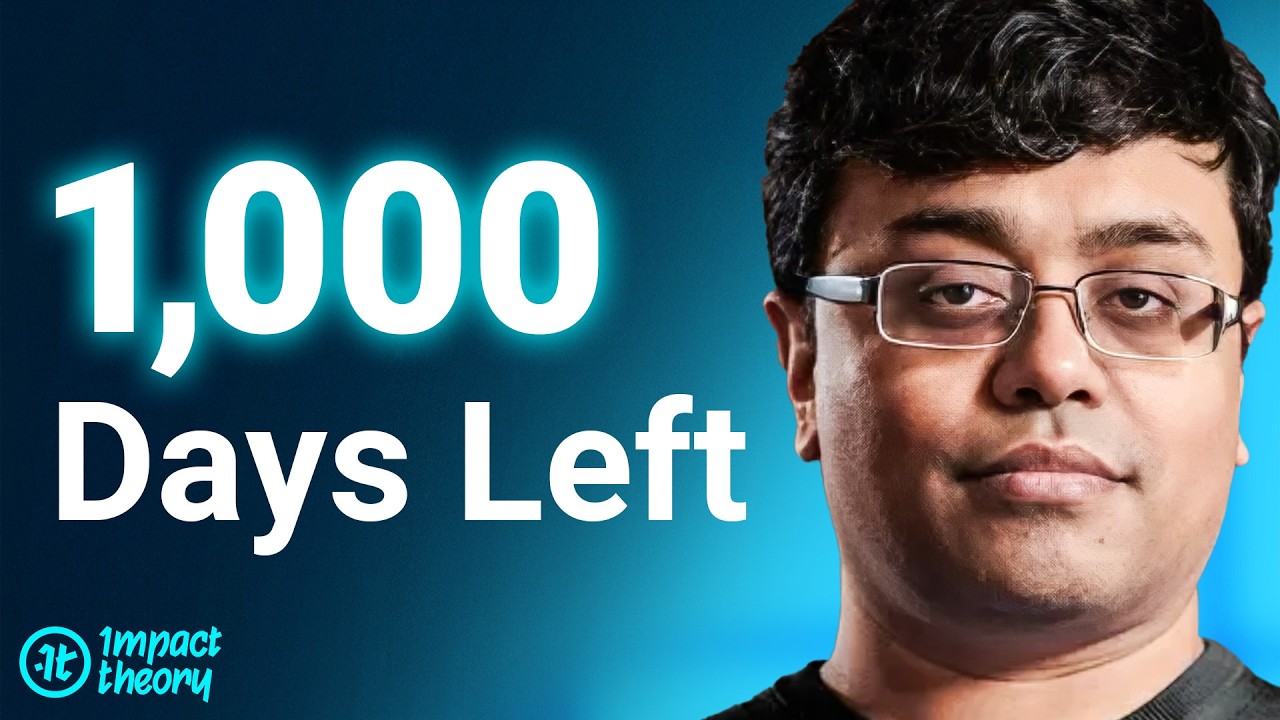- The impact of artificial intelligence on traditional economic models and why GDP may become outdated.
- How advances in AI could lead to shifts in capitalist structures and economic paradigms.
- The relationship between metabolic health, insulin sensitivity, and overall well-being.
- Understanding diet and nutrition’s role in promoting health in the context of modern technological changes.
Artificial intelligence (AI) is reshaping the infrastructure of our economic systems, challenging the relevance of traditional indicators like Gross Domestic Product (GDP). Emad Mostaque discusses the need to rethink GDP as AI becomes more integrated into our economic landscape. Traditional measurements such as GDP might not fully encapsulate the intricate contributions of AI to economic growth, thus demanding a reconsideration of how economies are evaluated.
AI’s integration could necessitate an overhaul of current capitalist structures. Traditional capitalism thrives on human labor and competition, both recalibrated by AI’s efficiency-oriented advances. Machines capable of learning and performing tasks previously reserved for humans can drive productivity but may exacerbate wealth inequality if not managed thoughtfully. This shift could catalyze the development of new economic paradigms, moving beyond typical capitalist frameworks to incorporate more equitable resource distribution.
In parallel, the understanding of diet and its impact on health can inform how societies adapt to these changes. Metabolic diseases, often rooted in poor dietary choices, pose significant health challenges. Insulin sensitivity, an essential marker of metabolic health, reflects how efficiently the body uses insulin to manage blood sugar levels. As AI advances, it brings the possibility of personalized nutrition algorithms, optimizing diet based on individual metabolic needs and improving insulin sensitivity.
The relationship between health and technology is crucial. Nutritional science has shown that processed foods and high sugar intake adversely affect metabolic health, leading to insulin resistance, obesity, and type 2 diabetes. By leveraging AI, we can better understand these dietary impacts and innovate approaches to mitigate metabolic disease, tailoring interventions to the individual.
An optimized diet rich in whole foods, lean proteins, and healthy fats can enhance insulin function and maintain metabolic health. AI’s predictive capabilities can support these dietary shifts by analyzing data patterns, thus pinpointing effective nutritional strategies that benefit populations.
As the dialogue between technology and health continues, the role of AI expands beyond economic reform to personal wellness. By providing insights into dietary choices that prevent metabolic conditions and improve insulin sensitivity, AI contributes to a healthier, more balanced society. For instance, AI systems can seamlessly evaluate dietary data, suggesting personalized meal plans that align with one’s metabolic profile, optimizing energy use and reducing disease risk.
In essence, the conversation about the relevance of GDP and capitalism in an AI-driven world also encompasses health dimensions. As we embrace AI’s capabilities, integrating its insights into economic and nutritional practices can foster well-being alongside technological progress. Through a dual focus on economic restructuring and health enhancement, society can navigate this transformative era with informed decision-making.
*****
Source Description
Tailor Brands: 35% off https://tailorbrands.com/podcast35
Shopify: Sign up for your one-dollar-per-month trial period at https://shopify.com/impact
Do you need my help?
STARTING a business: join me here inside ZERO TO FOUNDER (https://tombilyeu.com/zero-to-founder)
SCALING a business: click here to see if you qualify (https://tombilyeu.com/scale)
Get the exact systems, mindset shifts, and principles that built a $1B brand delivered straight to your inbox every week. Subscribe for free (https://tombilyeu.com)
Check out our Video game – Project Kyzen: (https://projectkyzen.io/)
Catch Me Streaming on Twitch – (https://twitch.tv/tombilyeu)
Link to IT discord: https://discord.gg/TZKJ2etPbT
Tom’s Favorite Things List: https://amzn.to/41Ftt7e
Welcome to Impact Theory with Tom Bilyeu. In today’s episode, Tom sits down with Emad Mostaque—former hedge fund manager, the visionary behind Stable Diffusion, one of the world’s most-used AI models and founder of Intelligent Internet. Emad makes a provocative claim: within the next 1,000 days, artificial intelligence won’t just automate jobs—it will fundamentally upend the very structure of our economy.
Together, Tom and Emad dive deep into what Emad calls “the last economy.” They break down why traditional metrics like GDP are woefully inadequate in our fast-approaching, AI-driven world, and reveal a new framework that better captures the realities of abundance, creativity, and human flourishing. Emad explains how AI’s relentless optimization could actually make human labor less valuable, even negative, and why our old measurements of success can lead us astray.
Expect a lively conversation on everything from the collapse of meaning in work, to the looming threat of social unrest, to bold ideas for economic reform as we head into this period of massive transformation. Tom presses Emad for both the hard truths and practical solutions—unpacking how individuals, societies, and even governments might navigate the coming chaos, redefine value, and ultimately thrive in the age of intelligent machines.
Strap in—today’s episode doesn’t just forecast disruption. It offers a roadmap for understanding and surviving the most significant economic transition of our time.


